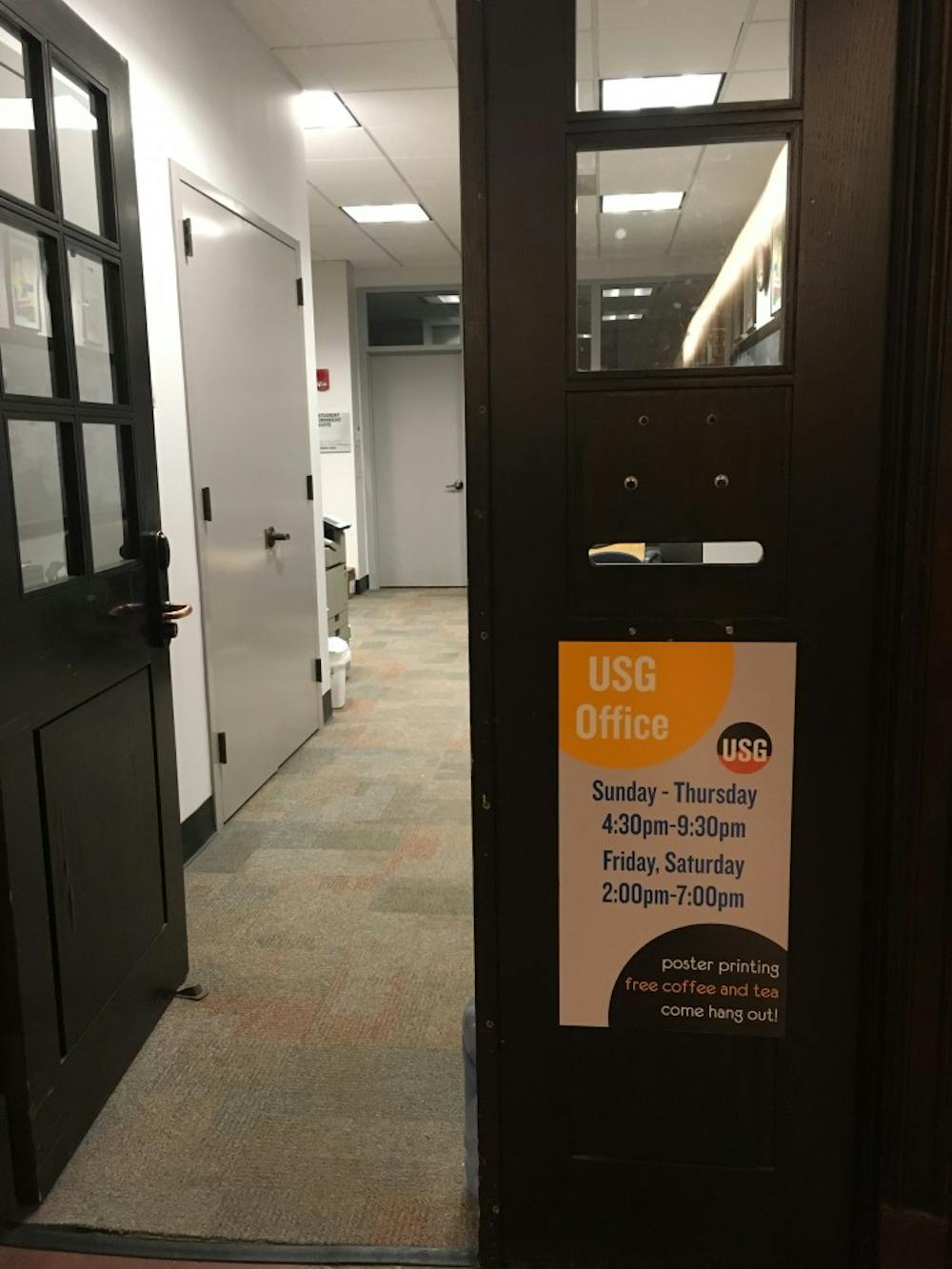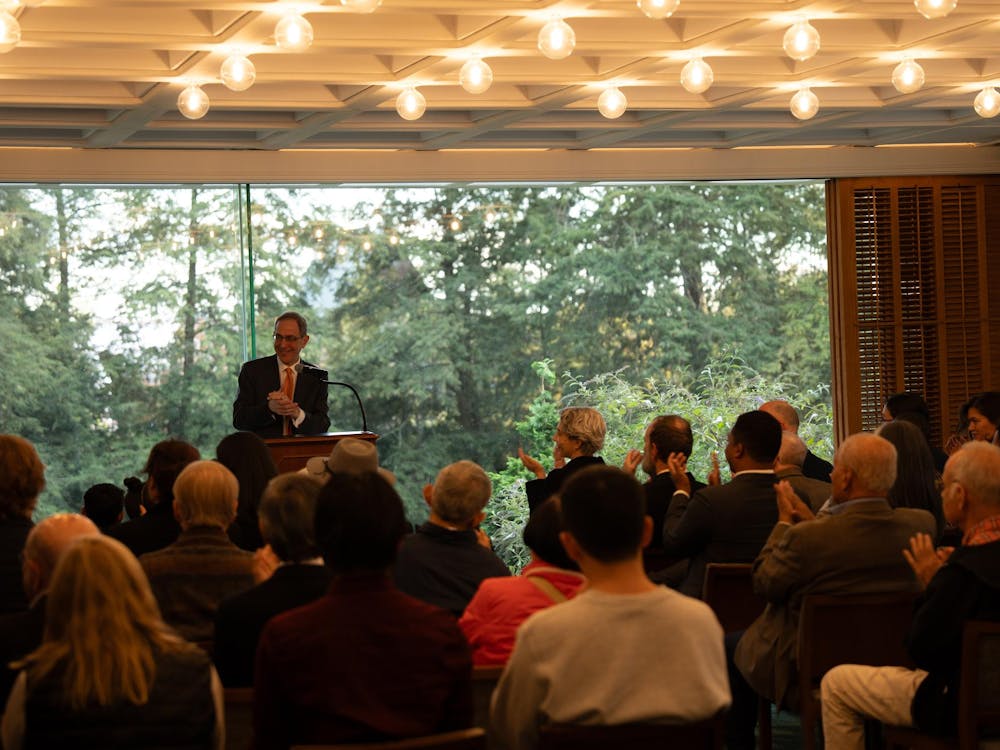What is USG?
It is neither a be-all end-all campus decision-maker nor the “student council” organization that it is stereotyped to be. The Undergraduate Student Government (USG) is, simply and quite literally, a body of students striving and hoping to do better for the school.
It’s easy to be pessimistic and say that USG doesn’t do anything. It’s easy not go to meetings—and even easier to criticize USG on anonymous platforms such as Tiger Confessions. It requires relatively no effort to see the world as a half-empty glass.
Yet, it’s much more impressive to remain optimistic — to dodge the beckoning and call of pessimism no matter how tempting it may be. As a senator for the Class of 2022, I have the privilege to attend USG Senate meetings every Sunday on behalf of my class. While many at Princeton become jaded with their undergraduate democracy, I choose not to be. Why?
I see my role as more meaningful than meets the eye. Every Wednesday from 8:30 to 9:30 p.m., USG tables at Frist Campus Center as part of the Transparency Task Force — an extended effort on USG’s part to reach out to the student body and provide undergraduates with information in a fun, interesting manner.
We’re there to educate about USG, listen to student concerns, and meet the people that elected us. There’s nothing more we’d like than for students to capitalize on this opportunity to talk and voice the things they’d like to see if we aren’t meeting expectations. Instead of this constructive discussion, however, Tiger Confessions unfortunately sees a lot of USG slander. Then USG apologizes, responds with passive aggression, and the circle of doubt and reformation continues.
So, for everyone still unsure of what USG does, I want to clarify the things that USG has accomplished. Here are a couple things that took a long time to fix and actualize. Calendar reform (finals before break rather than after) took over 10 years to accomplish. Honor Code Reform took around three years to push forward. Moreover, USG has been instrumental in aspects of our Princeton lives that we may take for granted: electronic meal exchange, making Kognito training accessible, Thanksgiving buses, and so much more.
The point is that change is the product of years of labor and effort. We generate the ideas to answer the problems that students face, and in doing so, we hope to lay the first few bricks down, not build the whole house. USG is built for and around student interests, so if you would like to see something change, think about coming to a meeting or talking to one of the people elected to serve you. Think about constructive ways of institutionalizing the changes you want to see. Attacking diligent student representatives in a Facebook group is unfair and doesn’t leave anyone better off.
USG is what we make of it. It will be the instrument of impact if students take interest — if students run for office, if students come to Senate meetings on Sundays at 8 p.m., if students join task forces, if students reach out to their representatives to engage in meaningful conversation about a brighter future at Princeton. Only then can we achieve some semblance of unified progress. Demand change, and if it’s not the change you wanted to see, run for office. Hold USG accountable, and hold people accountable to your expectations and goals.
USG works in conjunction with the administration, faculty, and students to achieve change behind the scenes. For those of you who are wondering what this means, please look at our meeting minutes and agendas. Reach out to anyone on the Executive Committee, or for that matter, in the Senate in general. Come to a meeting and if you still think we do nothing, that’s fine, but at least you’ll be informed. It undermines other students when the student body says, “You guys don’t do anything,” but doesn’t take the time to educate itself on the strides that their classmates are making.
USG functions only insofar as other students allow it to function. We can’t expect USG to make strides in changing things about campus if students take no interest in changing things about campus. Change requires a departure from the culture of complacency we have on campus, and USG is just one means of implementing that change. Organizations like the Princeton Climate Initiative, religious organizations, and others have also been taking important steps to improving campus community, whether it’s from a sustainability standpoint or service.
Change requires investment and belief. I’m not here to whine about the complaints toward USG. Instead, I implore the student body to empower rather than belittle, to embrace rather than turn away, and to be optimistic rather than skeptical.

Jasman Singh is a first-year from East Windsor, New Jersey. He can be reached at jasmans@princeton.edu.








